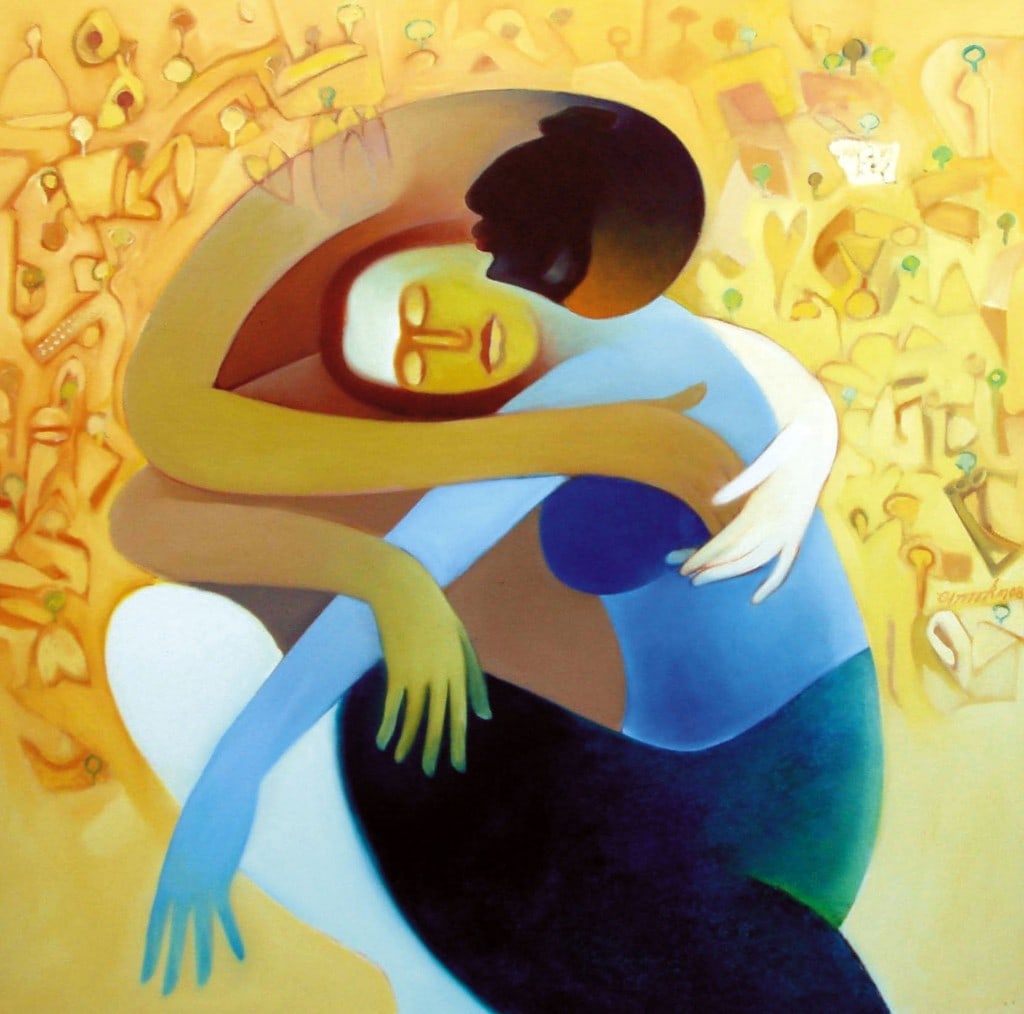There comes a time in the evolution of the soul when you simply get tired of how you’ve been doing life. The predominant cultural vision for what constitutes a life falls short. You’ve watched your personality (ego) turn your life into a war zone. You’re tired of how invested you are in being right. You’ve watched your ego react the same way over and over again, and you feel helpless that it’s ever going to be different.
You discover that emotional and physical trauma have caused you to unconsciously compensate to such an extent that you’re not actually living your own life. I remember the moment of awakening when I realized that the life I had was not my own. It was largely formed by the way I compensated for early trauma—either recreating the trauma unconsciously, so that I could see it and begin to heal or assiduously avoiding all situations that threatened to reveal the underlying trauma.
This is how we all learn to become “good”, “kind”, “thoughtful” of, quiet, loud, invisible or the life of the party for fear of not being seen.We learned to be ambitious or passive. We becomes intellectuals, or we stay rooted in our bodies at all cost. We live with deep suspicion of other’s motives, or we naively trust the first person who offers us some form of love. None of these strategies are good or bad in themselves. But when they are compensatory, they are strategic. And when the strategies begin to break down, we have the opportunity of a lifetime—the opportunity to get our life back.
Alice Miller called this the “false self”. When we awaken to how we’ve made this our frontal self, we can choose to retire it. We may realize that there are actually aspects of this self that have served us well. Academics may realize, for example, that the 10,000 books they’ve read in order to discover the meaning of life, (and never found), actually provide important context in the life of the soul. But ultimately, the false self needs to find its proper place, and it’s not in the driver’s seat.
All the trauma, which is the source of the false self, and all the ways we compensated for the trauma, need to be purged from our system. In Ayahuasca ceremonies, the medicine is a purgative, meaning you throw up, or yawn, or shake, or shit or cry or laugh. Over time you begin to welcome this purging, realizing that everything in your system that is not love is being removed.
Every mystical lineage also teaches that in order to shift into the dimension of soul and spirit, there needs to be a cleansing or a purification of the system. If not, then temporary experiences of the spiritual dimension, so-call peak experiences—will be fleeting. We will default under stress back to the compensation strategies. Through a practice of purging we are making our physical, emotional, thought, and subtle bodies able to be vessels for soul and spirit. We may need to go on a special diet, abstain from certain foods and drink (alcohol for example), end certain behaviours and other patterns of intimacy that are not loving. It’s different for everybody. But one thing is certain. There is no escaping the great purge if we are serious about living from soul and spirit.
In the Christian lineage, for example, “going to the cross” is a very powerful practice. We allow ourselves to be stripped of everything we had been attached to (all the self-images, wealth, status, all the stories of who we are, etc.) and actually undergo a death. This is not merely symbolic. It is an ordeal, and only those who are ready, will truly go to the cross. My sense is that on the cross, Jesus acted shamanically, to draw from the world all the evil, darkness, poison, negativity, etc. that is keeping the world from love. This is the role of the medicine in various plant medicine ceremonies as well.
We, too, once we have undergone this death, play the same role that Jesus played for our species. Others will be drawn to humans who have seen through the false self and the cultural self that conventional society presents are “normal”. We, like Jesus, may become exemplars of those who have shed the false self, and exhibit a compelling freedom. Having integrated our trauma consciously, we have no need for the strategies of the false self. We have gained the capacity to be present to the world in such a way that soul and spirit shine through.
A psychotherapeutic journey is itself purgative. We learn to witness our lives with deep curiosity, notice our reactivity, and ultimately to view all of our suffering as perfect re-enactments of early trauma. We then release our compensation strategies that are not serving us, and undergo a transformation, from personality-based life, to a life oriented from soul and spirit. We are, to use, a religious metaphor, born again. The cross gives way to resurrection.


I just did a read through your blog/website. I love the way it is set up and organized; the topics ( for lack of a better word) , the quotes included and the visuals placed throughout. I am also very much onboard with your vision and philosophy. It feels like a session with you would be gentle, compassionate, helpful and enlightening. My impression from your website is that you are a caring listener, are client focused and empathic as a psychotherapist. Best wishes with your new start!
Lorilee, thanks for sharing your impression and feeling tone from the site. Really important feedback for me. And thanks for your good wishes.